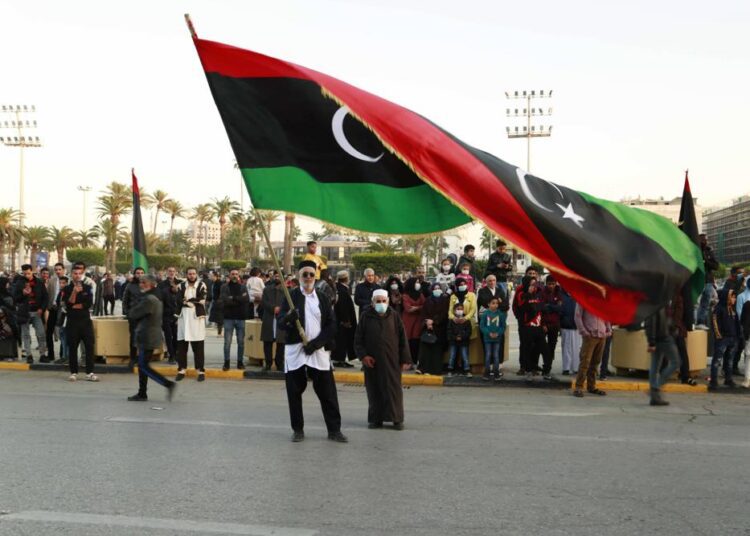CAIRO — Libyan lawmakers met Monday to discuss the myriad challenges that forced a postponement of the long-awaited presidential election this month. The postponement was a major blow to international efforts to end a decade of chaos in the oil-rich North African country.
The vote has faced many obstacles, including controversial presidential hopefuls, disputes over laws governing the elections, and occasional infighting among armed groups.
The parliament, based in the country’s east, convened to decide on the proposal by Libya’s election commission to hold the vote on Jan. 24. Under the proposal, the presidential election would be followed by parliamentary elections a month later, on Feb. 15.
There were no immediate details from Monday’s parliament session held in the eastern city of Tobruk. Abdullah Bliheg, spokesman for the legislature, said lawmakers would discuss “means to support” the election commission’s efforts to hold the vote.
Libya’s nationwide elections have for a year the lynchpin of U.N.-mediated efforts to bring peace to the oil-rich North African nation.
Another key obstacles on the road to balloting is a long-running rift between the country’s east and west, and also the presence of thousands of foreign fighters and troops supporting either side.
The failure to hold the vote last Friday has fueled concerns that Libya could again slide into another major outbreak of fighting.
Libya plunged into turmoil after a NATO-backed uprising in 2011 toppled dictator Moammar Gadhafi, who was later killed.
In recent years, the country became split between rival governments — one in the east, backed by military commander Khalifa Hifter, and a U.N.-supported administration in the capital of Tripoli, in the west of the country. Each side is supported by different militias and foreign powers.
A looming political vacuum is another threat, with some lawmakers arguing that the mandate of the interim government ended on Dec. 24, the day the vote had been scheduled.
Lawmaker Suliman al-Harrari, head of the parliament’s internal affairs committee, told Fawasel, a media website, that the legislature would deliberate whether the interim government could remain at the help until the vote takes place.
The government — a three-member Presidential Council and a Cabinet headed by Prime Minister Abdul Hamid Dbeibah — was appointed earlier this year, with the task to lead the nation through the Dec. 24 vote.
Dbeibah had also announced his bid to run for president.






Discussion about this post